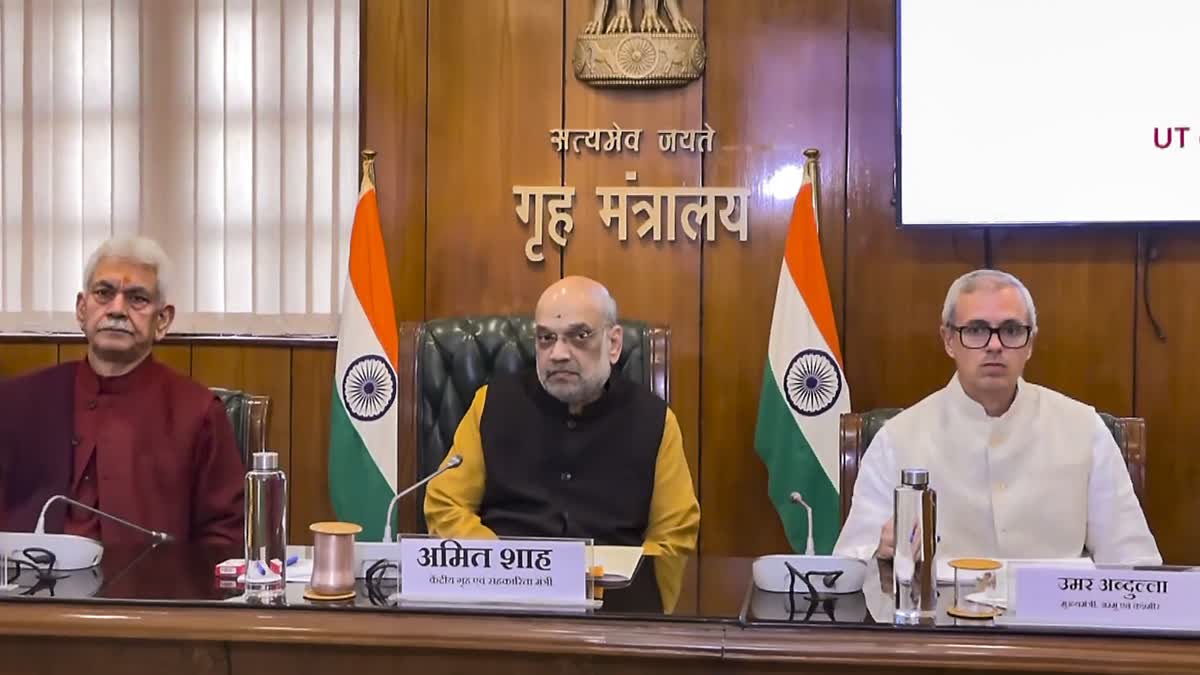New Delhi: Stating that implementation of the three new criminal laws was not the mandate of the elected government of Jammu & Kashmir, Chief Minister Omar Abdullah on Tuesday said that his government will be part of efforts to create awareness about the provisions of the three laws.
“Implementing three new criminal laws is not the mandate of the elected government in Jammu and Kashmir, but the elected government needs to do more to create awareness about the provisions of the laws because people should be aware of them,” said Omar after the meeting with Home Minister Amit Shah.
The high-level meeting chaired by the Home Minister Amit Shah to review the implementation of new criminal laws in Jammu & Kashmir was also attended by Lieutenant Governor Manoj Sinha, Chief Minister Abdullah, Home Secretary Govind Mohan, J&K director general of Police Nalin Prabhat and several other top officials from the home ministry and J&K.
Omar said that there was no meeting related to the security situation of J&K during the meeting.
“I had discussed security matters related to J&K during my recent meeting with the Home Minister in Parliament premises. However, the elected government of J&K was not part of the previous two meetings called by the central government on security issues. So, I was not part of two meetings held earlier,” said Omar.
He said, “There is a difference between this meeting and the previous two meetings. Today’s meeting was about new laws and their implementation. If the decision has been made not to include representatives elected by the people over security issues, what can I say?” he quipped.
Referring to the dissent note sent by leader of the opposition Rahul Gandhi over the selection of new chief election commission, Omar said that the opposition leader has a right to send such dissent note.
“The leader of the opposition has the right to dissent in the selection meeting. Opposition does not need to always agree with the government. So, he (Rahul Gandhi) utilized his right and sent the dissent note,” said Omar.
Chief Minister Omar said that the issue, relating to the constitution of the selection committee for picking the chief election commissioner and election commissioners is a sub-judice matter of the Supreme Court.
The Bharatiya Nyaya Sanhita, the Bharatiya Nagarik Suraksha Sanhita and the Bharatiya Sakshya Adhiniyam replaced the colonial era Indian Penal Code, the Code of Criminal Procedure and the Indian Evidence Act of 1872, respectively.
The new laws came into effect from July 1 last year.
Abdullah attended the meeting though law and order is directly handled by the Central government since the erstwhile state was bifurcated into the union territories of Jammu and Kashmir, and Ladakh in 2019.
The home minister has already reviewed the status of the implementation of the new criminal laws in several states, including Uttar Pradesh, Haryana, Uttarakhand, Madhya Pradesh and Gujarat. (With inputs from agencies)
Read more:



